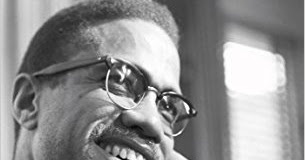


One moment of the film includes Malcolm’s most famous use of this technique, his declaration that, “we didn’t land on Plymouth Rock. Some examples of Malcolm’s use of chiasmus include, “You end up hating your friends and loving your enemies,” “People accept wrong as right and reject right as wrong,” and “People actually think that the criminal is the victim and the victim is the criminal.”Īn example of Malcolm’s rhetorical technique. Some of Malcolm’s most famous techniques appear, including his use of chiasmus, the use of words and phrases in reverse order, to underscore the broken reality that is a black person’s life in the United States. Obviously, Malcolm X’s rhetoric features heavily in the film. The film largely depends on Malcolm’s rhetoric to drive the story and appeal to the audience. Lee’s film stars Denzel Washington and features such black leaders as Bobby Seale, Reverend Al Sharpton, and Nelson Mandela. Arguably Spike Lee’s best work, the film largely takes its inspiration from the book The Autobiography of Malcolm X, a collaboration between Malcolm X and Alex Haley (who completed and published the book after Malcolm’s death in 1963). F.In 1992, Spike Lee’s biopic Malcolm X hit the theaters.

“This book will have a permanent place in the literature of the Afro-American struggle.” -I. a brilliant, painful, important book.” - The New York Times Praise for The Autobiography of Malcolm X It is essential reading for anyone who wants to understand America. The Autobiography of Malcolm X stands as the definitive statement of a movement and a man whose work was never completed but whose message is timeless. His fascinating perspective on the lies and limitations of the American Dream, and the inherent racism in a society that denies its nonwhite citizens the opportunity to dream, gives extraordinary insight into the most urgent issues of our own time. In the searing pages of this classic autobiography, originally published in 1964, Malcolm X, the Muslim leader, firebrand, and anti-integrationist, tells the extraordinary story of his life and the growth of the Black Muslim movement. ONE OF TIME’S TEN MOST IMPORTANT NONFICTION BOOKS OF THE TWENTIETH CENTURY


 0 kommentar(er)
0 kommentar(er)
